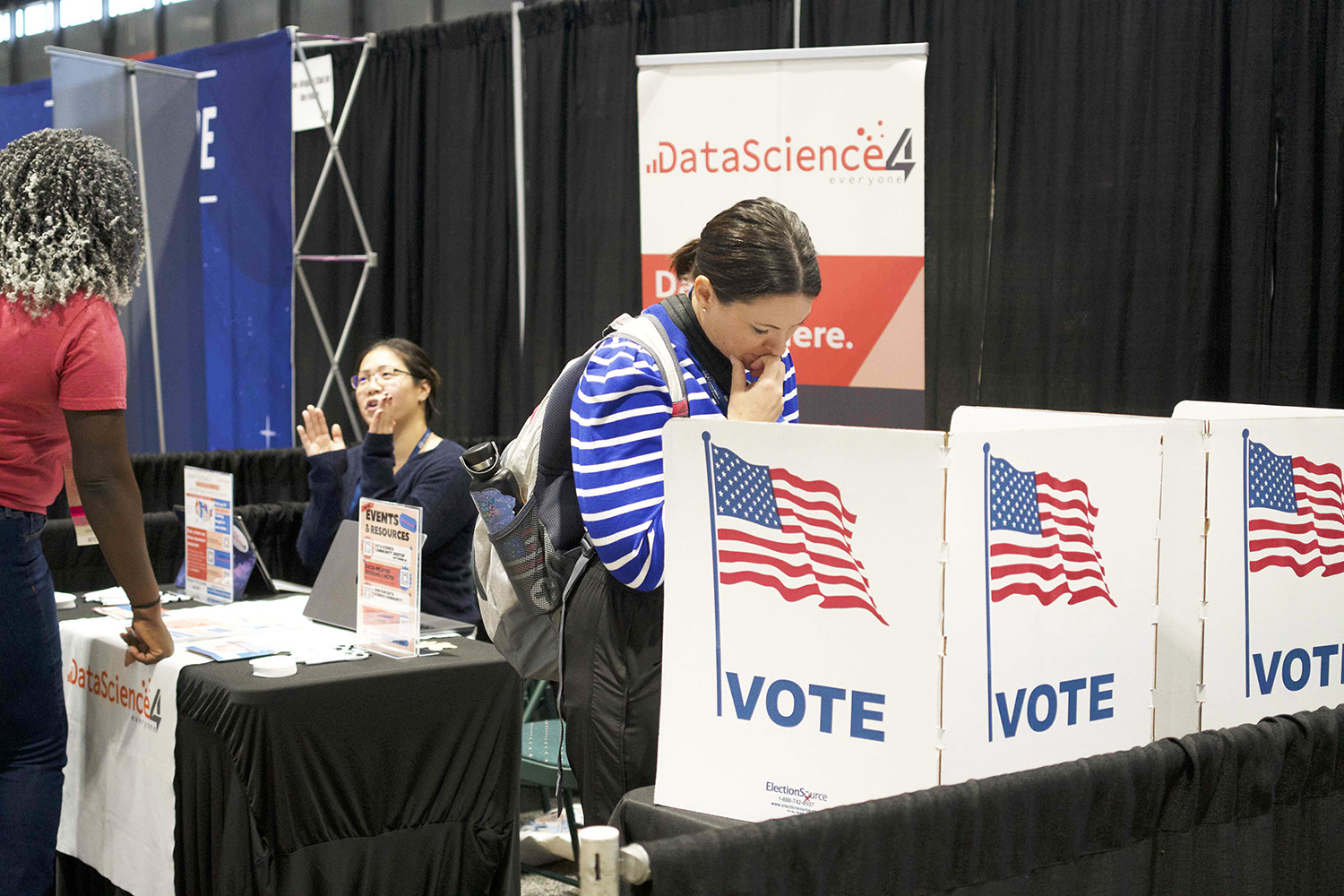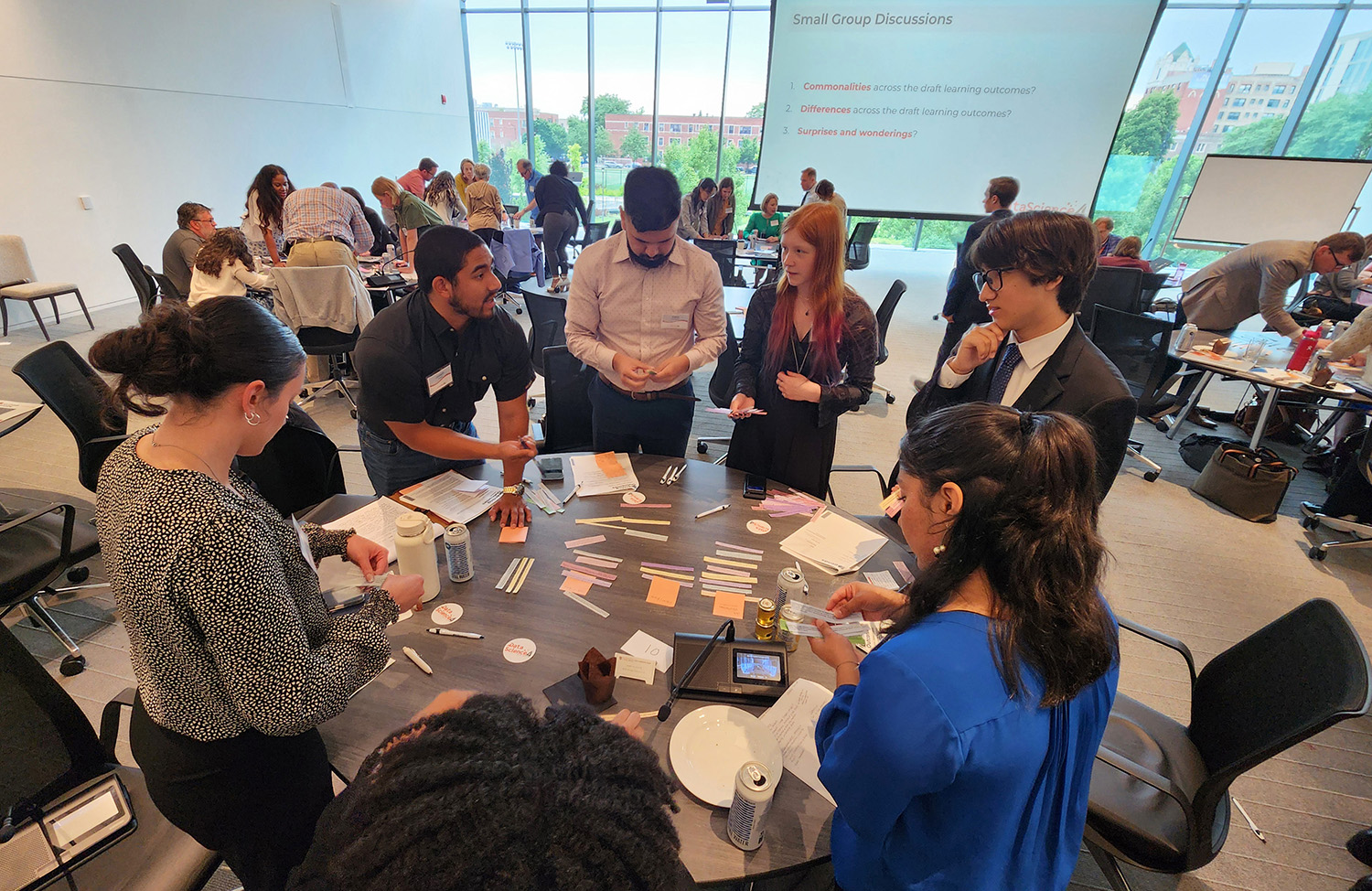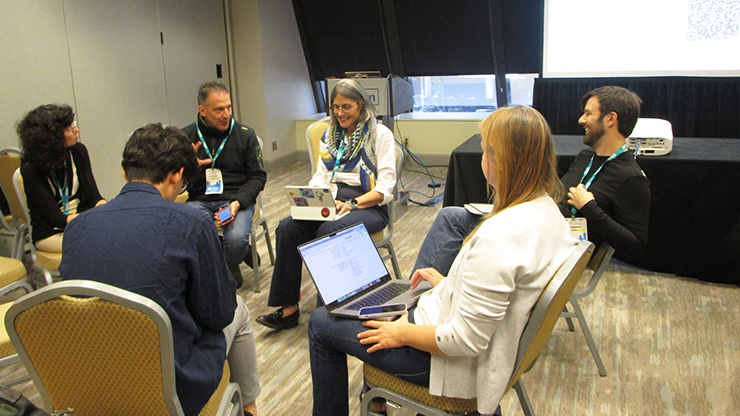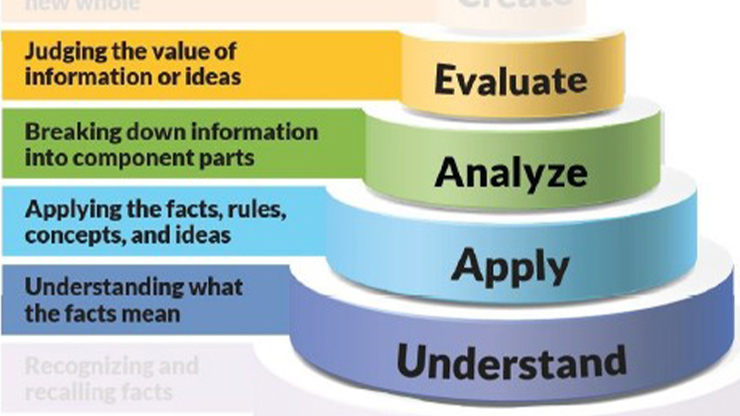Data Science 4 Everyone Seeks to Revitalize K-12 Mathematics Education
K-12 mathematics educators are currently charting a new course to redefine the purpose and methodology of their lesson plans. Modern workforce demands—coupled with a push for improved student understanding of math’s utility in real-world situations—are actively shaping discussions about the teaching and assessment of mathematical concepts. At the same time, educators continue to emphasize the importance of interdisciplinary, project-based classroom activities that incorporate science, technology, and mathematics. In today’s world, these efforts are often driven by the widespread importance of data, which plays a major role in decision-making and innovation.
Given data’s profound impact on many areas of industry and academic research, the path forward is clear: the integration of data science into K-12 classrooms will equip all students with the necessary tools to thrive in an increasingly data-driven world. This vision aligns with the mission of Data Science 4 Everyone (DS4E)—to catalyze the adoption of data science as an integrated component of K-12 education by 2030—and is echoed in DS4E’s State of the Field: Data Science and Data Literacy Education in US K-12 report [5].

Since its inception, DS4E has worked to raise awareness of the importance of data in K-12 education. The idea for a national coalition stemmed from a 2019 episode of the podcast Freakonomics Radio, in which Steven Levitt (co-author of the book Freakonomics) remarked, “I believe that we owe it to our children to prepare them for the world that they will encounter — a world driven by data” [1]. Inspired by this conviction, Levitt and a group of advocates came together to officially form DS4E in the summer of 2021. From the beginning, the coalition has sought to transform K-12 education in data science and mathematics by advising states on standards, guiding districts in implementation, and providing professional development and collaborative programs for both teachers and students.
Mathematics teachers often seek to contextualize their curricula and demonstrate the existing connections between math and other fields. While past efforts to reimagine mathematics education primarily focused on content, today’s challenges and opportunities present a fundamentally different landscape. The rise of data and artificial intelligence (AI) demands a transformative approach that emphasizes what students learn and how they learn it. The integration of data and computing tools into the learning process extends instruction beyond traditional math concepts and helps students navigate and leverage the technologies that shape the modern world.
For example, students now have access to free, web-based tools (such as data analysis software) that redefine their exploration of the connections between data and mathematics. These resources should comprise a foundational component of mathematics instruction to strengthen students’ data intuition and expose them to the many applications of math. The inclusion of data literacy as an integral component of K-12 education is a pillar of DS4E’s mission. The coalition believes that “to be successful in a world already defined by data, students must begin learning and developing the fundamentals of data science—data intuition and data literacy—in primary and secondary school, regardless of whether they go on to college or major in data science” [5].
Recent research from the Burning Glass Institute and ExcelinEd revealed that roughly 22 percent of U.S. job postings now require at least one skill that pertains to “getting, exploring, and analyzing data” [4]. While traditional job titles like computer scientist, engineer, or business analyst may immediately come to mind, a broader trend is actually at play; at least 30 percent of job listings in industries such as utilities, manufacturing, agriculture, and forestry now call for one or more data science skill. This major shift in the job market means that data science expertise is no longer exclusive to data scientists and instead extends to a wide array of professions.
To address this growing need, DS4E is working to ensure that all K-12 classrooms have multiple opportunities to engage with data across various subjects. In mathematics education, this goal includes finding a better balance between teaching procedural processes and preparing students to use data, math, and computing to tackle complex problems. We must leverage data to connect mathematics with science and technology and ensure that students gain practical, applicable knowledge.

One of DS4E’s most impactful initiatives is the After the AP Data Science Challenge, which we launched in partnership with Skew The Script, CourseKata, and North Carolina State University’s Data Science and AI Academy. This program introduces Advanced Placement (AP) Statistics and AP Computer Science students to the fundamentals of data science with a project that analyzes data from the U.S. Department of Education’s College Scorecard. It begins with a professional development opportunity for teachers, who learn to program in R and gain a foundational understanding of exploratory data analysis and machine learning. Once the instructors are prepared, their students participate in the challenge after completing their AP exams. In its 2023 pilot year, 2,500 students took part in the competition. Based on participant feedback, we refined and expanded the program to attract more than 9,000 students in 2024.
Until recently, data science in K-12 education has mostly been overlooked. A National Academies report estimated that only six percent of U.S. high schools offered data science programs in 2023, in which just 0.1 percent of teachers and 3.6 percent of students participated [2]. But due in part to ongoing efforts by DS4E, the number of states that offer some form of data science education has grown from only two states in 2019 to 29 in 2024. During the 2023-2024 academic year, 277 schools and 104 districts in the U.S. included data science in their curricula [5].
Despite this progress, the current state of data science education still fails to meet the requirements of most employers. Recognizing the need to close this gap, the National Council of Teachers of Mathematics (NCTM) recently published a formal position that “data science content should be available to all students in order to complete their high school mathematics graduation requirement” [3]. K-12 mathematics instruction should no longer teach concepts solely through memorization and procedural steps; instead, it must integrate computer software technology and data science principles to highlight mathematics’ important role in problem solving. To support state- and district-level entities as they navigate the shifting educational landscape, DS4E has partnered with groups in Utah, New York, and North Carolina. For instance, the coalition collaborated with the aforementioned Data Science and AI Academy to host the NC Data Science Education Summit in the fall of 2023 and 2024. This event emphasized the importance of data science in early education and aimed to position North Carolina as a leader in the transformation of data science education.
As of fall 2023, the NC Department of Public Instruction did not offer any data science courses. In response to this dearth, outreach organizations at NC State—with support from DS4E—led the development of course outcomes for a revised Introduction to Data Science course that falls within the Department’s Career and Technical Education sector. This course can now fulfill the computer science credit requirement for high school graduation in North Carolina, thanks to continued support from NC State and DS4E to train teachers, plan curricula, and secure access to technology. Partnerships such as these accelerate progress and generate sustained and impactful change.

Mathematics education should foster data intuition in the early grades, build data literacy in middle school, and integrate data science competencies across all high school subject areas. To achieve this goal, DS4E is working with students, educators, academics, and professionals to create a national learning progression for K-12 data science and data literacy. In June 2024, more than 100 education leaders gathered at the University of Chicago to further this work, building on five previous months of collaboration among 11 focus groups and organizations like the NCTM, National Science Teaching Association, National Council for the Social Studies, and Computer Science Teachers Association. The discussions at this convening prioritized key data education outcomes that students should meet by high school graduation.
One critical aspect of this event was the K-12 Data Science and Literacy Learning Progressions Writing Sprint, during which a group of educators drafted an outline that constitutes the foundation for the first version of the learning progression (set to be released later this year). We hope that it will serve as a resource for states and districts as they develop or revise the standards and assessments of mathematics and data science courses. Additionally, we encourage other disciplines to use the progression to incorporate data into their own curricula. In fact, the progression could even facilitate the design of training programs in pre-service teacher procedures and in-service professional development initiatives.
As the world grows increasingly reliant on data, all students must develop data literacy and data science skills. Beyond success in higher education, such skills will help students access diverse career opportunities and become informed, contributing members of society.
Mahmoud Harding delivered an invited presentation on this topic at the 2024 SIAM Conference on Applied Mathematics Education, which took place in Spokane, Wash., last July in conjunction with the 2024 SIAM Annual Meeting.
References
[1] Dubner, S.J. (Host), & Lapinski, Z. (Producer). (2019, October 2). America’s math curriculum doesn’t add up [Audio podcast episode]. In Freakonomics Radio. Renbud Radio. https://freakonomics.com/podcast/americas-math-curriculum-doesnt-add-up-ep-391.
[2] National Academies of Sciences, Engineering, and Medicine. (2023). Foundations of data science for students in grades K-12: Proceedings of a workshop. Washington, D.C.: The National Academies Press.
[3] National Council of Teachers of Mathematics. (2024). Teaching data science in high school: Enhancing opportunities and success. Retrieved from https://www.nctm.org/Standards-and-Positions/Position-Statements/Teaching-Data-Science-in-High-School_-Enhancing-Opportunities-and-Success.
[4] Salerno, C., & Steemers, F. (2024). Data science is for everyone: The new landscape for data science skills and a national imperative for investing in the nation’s workforce. The Burning Glass Institute/ExcelinEd. Retrieved from https://excelined.org/wp-content/uploads/2024/02/Burning-Glass-Institute-Final-ExcelinEd-Data-Science-Report.pdf.
[5] Sukol, S. (2024). State of the field: Data science and data literacy education in US K-12. Data Science 4 Everyone. Retrieved from https://www.datascience4everyone.org/stateofdse.
About the Author
Mahmoud Harding
Instructional Design Director, Data Science 4 Everyone
Mahmoud Harding is the Instructional Design Director of Data Science 4 Everyone and a former math and data science teacher at the North Carolina School of Science and Mathematics.

Stay Up-to-Date with Email Alerts
Sign up for our monthly newsletter and emails about other topics of your choosing.






